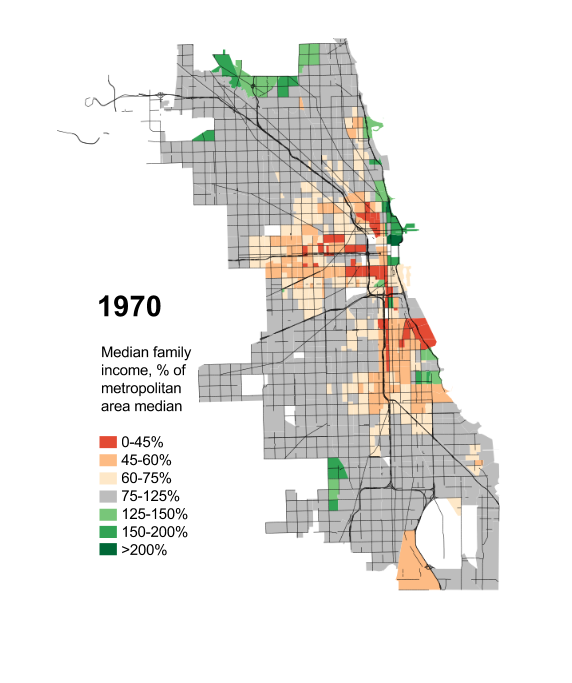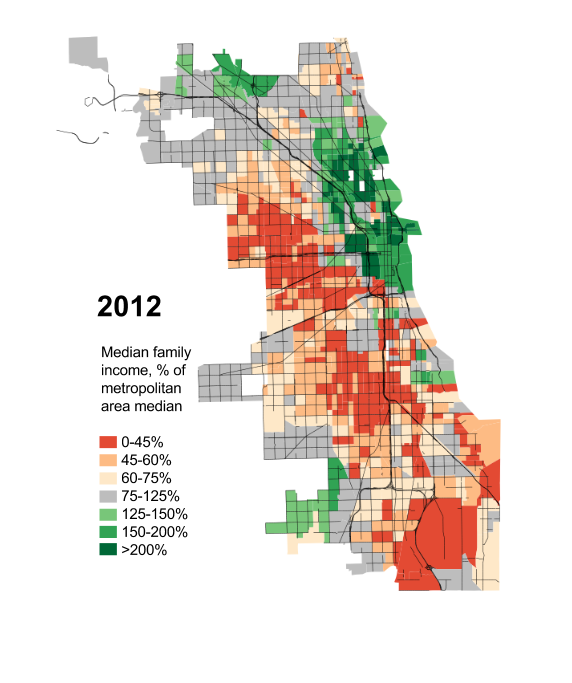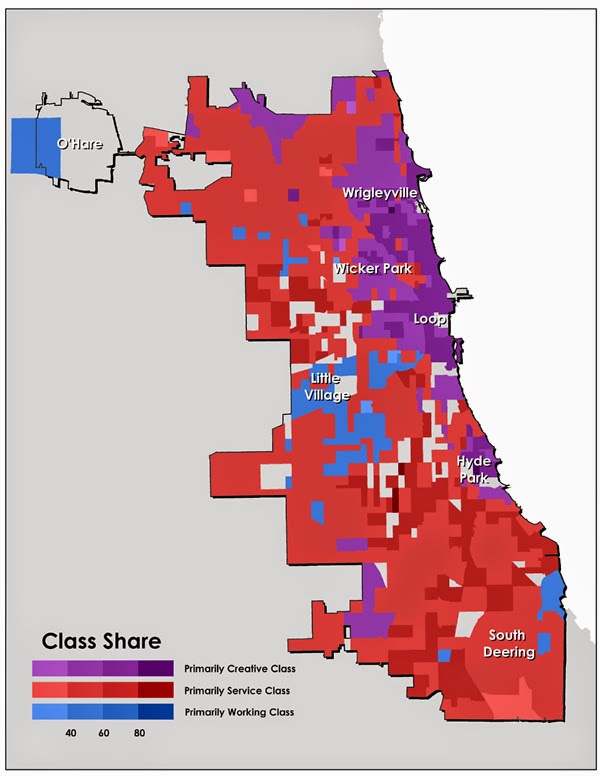The Bifurcated City

I am alarmed by the emergence of the bifurcated city. Inequality is widening, and trends suggest that those on the "have" side of the divide will continue to garner more resources than those on the "have not" side.
Recently, fellow blogger Daniel Kay Hertz created some fascinating maps of Chicago that documented stark changes in income levels at the census tract level between 1970 and 2012. In just 42 years, Chicago went from this:

To this:

Daniel's work is exceptional, and is worthy of the attention it's been getting. However, I find the general discussion of the maps mystifying. Most people seem to be focused on lamenting the loss of Chicago's middle class; I see the rapid spread of the wealthy and poor. I think that's a key distinction.
This is becoming a defining characteristic of 21st century cities. About a year ago Richard Florida ran a series that demonstrated similar patterns within 12 U.S. metro areas, but focused on job classifications (creative class, service class and working class) instead of income. Creative class jobs are understood to be high-wage positions for highly-educated workers; service class jobs are low-wage and low-skill positions, and working class jobs are the disappearing but still relatively well-paying manufacturing jobs. In Florida's analysis of Chicago, we find the map looks similar to the income map:

Among our largest cities, Chicago seems to be emerging as the clearest example of the bifurcated city, with a few challengers to the title -- Washington, DC, Atlanta, Miami and Los Angeles. In each city there are large contiguous areas of both higher and lower income residents; a line can be drawn between the two. In other cities the lines are not as stark: New York's physical geography creates a more complex pattern throughout the city, and Philadelphia, Dallas and Houston show more of a scattering of classes across the city.
I'm worried because we see how the bifurcated city meme is playing out in Chicago. Calls for more affordable housing in the most desirable areas of the city, while gun violence plagues the city's devastated neighborhoods.
Where we're headed with this, I just don't know.


